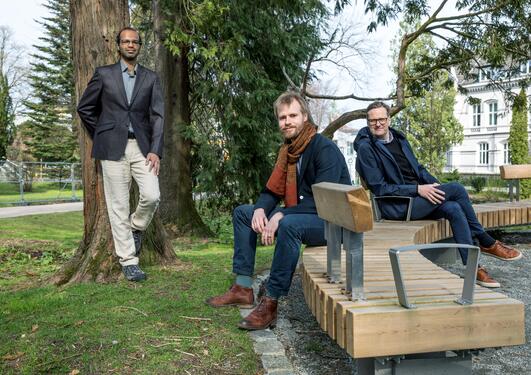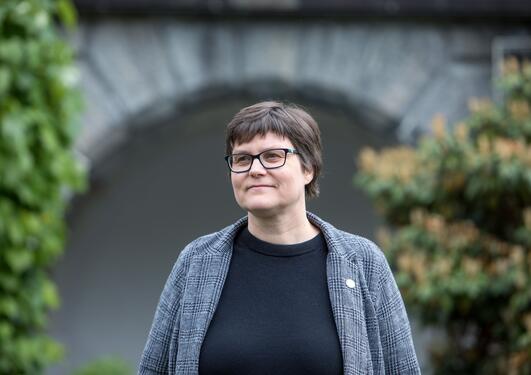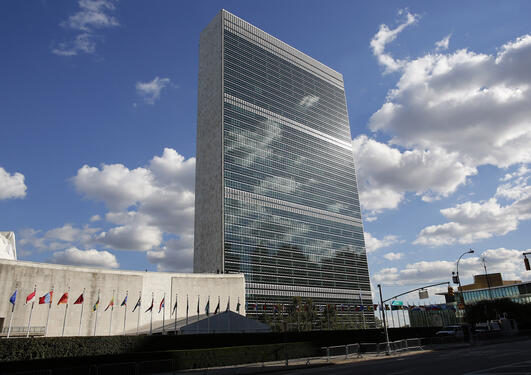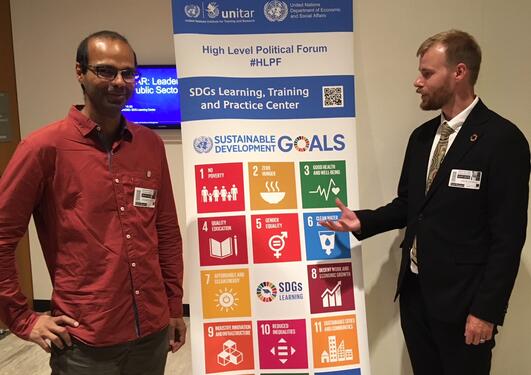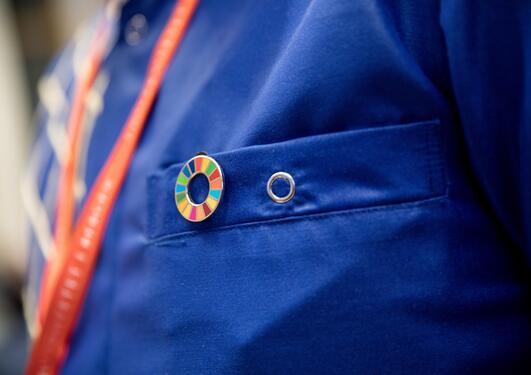Building a sustainable world
In February 2018, Victoria W. Thoresen and Jakob Grandin were key participants in the inaugural SDG Conference Bergen. The first national conference in the world bringing the university sector together in critical debate to engage with the UN's 2030 Agenda.

Hovedinnhold
At the inaugural SDG Conference Bergen in February 2018, PhD Candidate Jakob Grandin from the University of Bergen (UiB) was moderator in the panel where Associate Professor Victoria W. Thoresen from the Inland Norway University of Applied Sciences was one of the participants.
First of its kind worldwide
The 2018 SDG Conference Bergen was the first of its kind worldwide, bringing together the national university sector to discuss the Sustainable Development Goals (SDGs).
“It is important to bring higher education institutions together to discuss SDGs in order to continue to raise awareness on sustainability and the responsibilities higher education institutions have towards achieving them. It helps to share research results on issues related to SDGs with each other and with the community at large,” argues Victoria W. Thoresen.
“The first SDG Conference Bergen was important in highlighting the vital role research and higher education can and should play in societal transformations towards sustainability. It has also spurred support for sustainability initiatives from the university leadership and promising science diplomacy ventures,” according to Jakob Grandin.
He believes that at their best, universities can be arenas for long-term thinking to accommodate the complexity and conflicts of interest inherent in sustainability challenges.
“But if we are to live up to that role, the university sector also needs to rethink and rework itself,” says Grandin, pointing towards the theme of the second SDG Conference Bergen.
UiB introducing online course module
In July 2018, Thoresen and Grandin co-arranged a workshop organised by UN DESA in New York at the UN high-level political forum (HLPF), with other global university partners.
“Our session at the HLPF highlighted that the university sector is ready to contribute to the 2030 Agenda in a multitude of way. It was great to share experiences in how to design meaningful partnerships between researchers, students, and society with leading SDG-oriented universities worldwide,” says Grandin.
“Motivating factors at HLPF were an emphasis on the importance of interdisciplinary collaboration. Also the highlighting of a more careful and reflective use of the terms sustainable, sustainability, and sustainable development. And not the least a reminder that sustainable development is not only about the environment, but also about changing our lifestyle so no one will be left behind,” says Thoresen.
Grandin also points to the fact that UiB has followed up the HLPF workshop with an online course module on “Accelerating sustainability action through transformative partnerships between students, researchers and society”, which will go public at the UN website in spring 2019.
re:thinking / re: working – progress made
Approaching the second National SDG Conference for Norway's university sector, more people are engaged with and are talking about the SDGs than ever before.
“In Norway, the most encouraging progress of the last year has been the inclusion of sustainable development as a cross-cutting theme in all grades in public schools. Also, the realisation by teachers and higher education institutions that they need to know more about the SDGs,” says Thoresen.
“Last year was significant because the urgency of sustainability action was foregrounded in the public debate, not the least through the publication of the IPCC special report on Global Warming of 1.5°C,” says Grandin.
“The university sector is also seriously considering the implications of this for its own practice. I am particularly encouraged to see focussed and substantive efforts in rethinking higher education in the light of sustainable development and efforts to decrease the environmental footprint of our own activities.”
Innovations in sustainability
Both Thoresen and Grandin are participating in the second national SDG Conference Bergen. Both in the conference itself, but also in the new and innovate pre-conference concept Day Zero – on the day before the conference.
“It is important to defend the unique role higher education institutions play in society: as arenas to freely explore questions and as spaces for critical reflection. But we also need to reconsider much of our practice,” says Grandin, “we need to rethink the skills and knowledge that is taught in higher education, and rework how we organise it. Sustainability problems are characterised by uncertainty, multiple framings and high stakes, and this calls for interdisciplinary and pluralistic higher education where students play a much more active role in their own learning.”
Thoresen agrees with Grandin and believes that higher education institutions need to take a more active role in the shaping of future society.
“We need to establish interdisciplinary forums for discussion and research. There must be more time and space to maintain a flexible attitude to a definition of sustainable development, combined with an awareness that this new knowledge will change or modify our definition of sustainability,” argues Thoresen, ”and we must communicate our research and ideas in a language and a format that is understandable to ‘common people’‚ not only by experts in a given discipline.”
